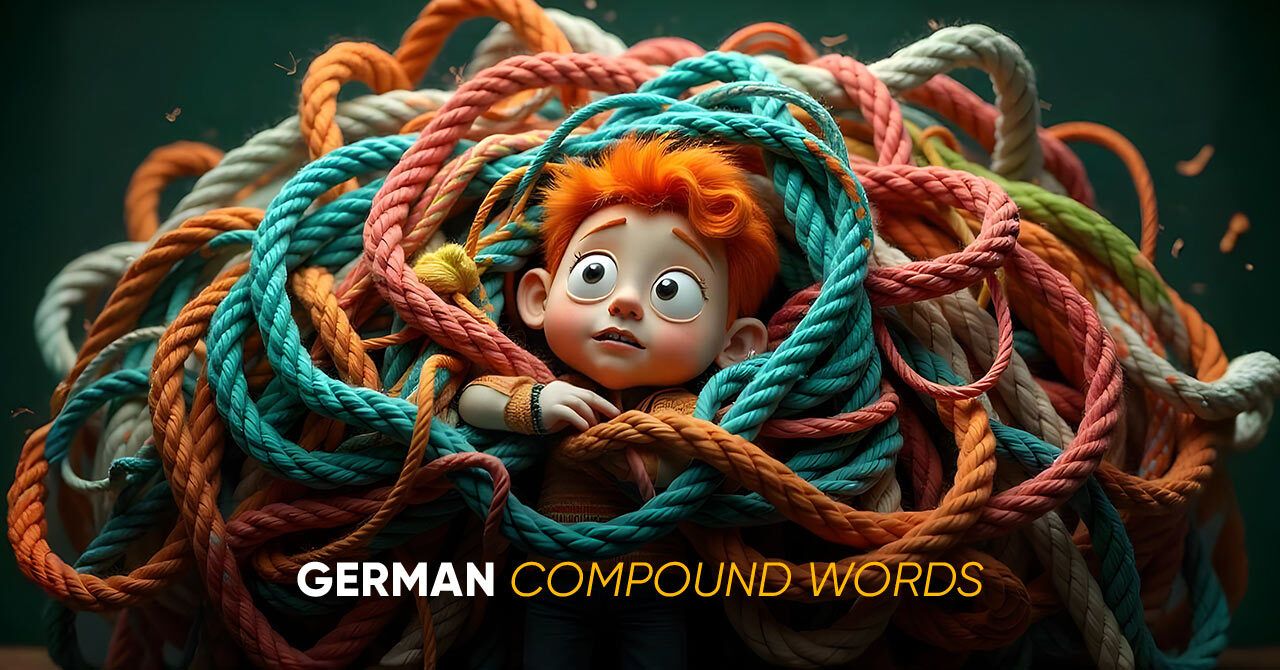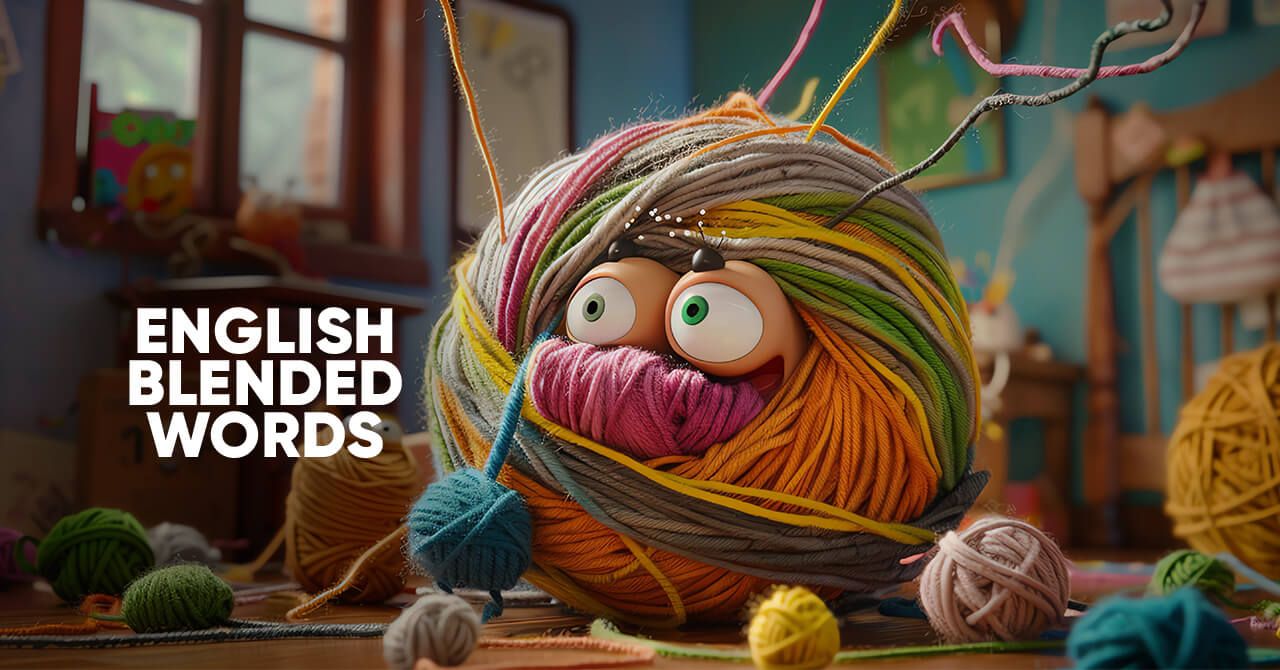German Compound Words: How Not to Be Confused
The German language and compound words are inseparable. It gives the speaker a unique chance to transform any of his observations from a complex idea into one simple word.

Early on, students of the German language are often confronted with one recurring problem—very long German words. But while they might seem hard to wrap one’s head around at the beginning, they follow a very logical grammatical rule called compounding. In compounding, two (or more) already existing words are put together to create yet another word with a wholly new meaning, making compounding, or “Komposita” as the practice is referred to in German, daily business, and a grammatical phenomenon you should be comfortable using.
Common examples of German compound words
Now, you might be quick to point out that German isn’t the only language that uses compounding—and that’s true. Compounding is not an exclusively German phenomenon. In the English language, we also use compound words on a day-to-day basis. When you get up in the morning, you use a “toothbrush” to brush your teeth. If you had a bad night of sleep, you might complain about a “headache,” and on your way to work, you might see a “billboard.”
And you are right! Compound words in German follow the same logic as English compound words or that of many other languages you might know.
Familiarize yourself with these examples to get an idea of German compound words:
- Handschuh = glove (Hand + Schuh = hand + shoe)
- Staubsauger = vacuum cleaner (Staub + Sauger = dust + sucker)
- Flughafen = airport (Flug + Hafen = flight + harbor)
- Zahnarzt = dentist (Zahn + Arzt = tooth + doctor)
- Fernseher = television (Fern + Sehen = far + seeing)
- Wasserkocher = kettle (Wasser + Kocher = water + boiler)
- Geschirrspüler = dishwasher (Geschirr + Spüler = dish + washer)
- Taschenlampe = torch (Tasche + Lampe = bag + lamp)
- Lebensmittel = groceries (Leben + Mittel = life + means)
- Schneemann = snowman (Schnee + Mann = snow + man)
There is, however, at least one stark difference between those above cute and handy English compound words and German letter marathons such as “Streichholzschächtelchen” and “Einkommensteuererklärung.” German compound words tend to be quite long. Let’s dive deeper to grasp how to create German compound words.
This is how you build German compound words
The German language and compound words are inseparable. It gives the speaker a unique chance to transform any of his observations from a complex idea into one simple word. A compound noun, or “Kompositum,” is usually made up of two nouns. Now, you can just plaster any two German nouns together to create a functioning compound word. That would be messy. And Germans like their order. Instead, you create German compound words by identifying “main” words and making use of connecting elements. Let me show you how it’s done:
To grasp any compound word grammatically, identify the last word of the cluster first. This “Grundwort” is not only important grammatically. It also serves as a base for the whole word’s meaning, while the other word serves as a determiner—or “Bestimmungswort” in German. Let’s look at the German word for a glove, “Handschuh,” for example. This compound word describes a shoe, “Schuh,” for your hand, “Hand,” being a glove. Quite literal, isn’t it?
By obeying the rule of the “main” word and the determiner, you will be able to build German compound words that make sense. To create German compound words that are also grammatically correct, however, you will also have to take connecting elements into account. While many compound words can be created without such, you cannot go completely without them.
These connectors are placed between the determiner and the “main” word to create a smooth-sounding new word.
Different types of German compound words
Usually, German compound words are created by combining two nouns. However, that is not true for all of them. You can take almost any type of word to create a functioning compound word in German, such as verbs, adjectives, adverbs, pronouns, prepositions, and prefixes. These are some of the types of German compound words you should know apart from the classic German compound noun:
Verb + Noun
Combine a main word with a verb determiner to describe a word in relation to an action:
- Fahrstuhl = lift (fahren + Stuhl = to drive + lift)
- Tanzfläche = dancefloor (tanzen + Fläche = to dance + area)
- Schreibblock = writing pad (schreiben + Block = to write + block)
- Kochbuch = cookbook (kochen + Buch = to cook + book)
- Lesebrille = reading glasses (lesen + Brille = to read + glasses)
Adjective + Noun
Combine a main word with an adjective determiner to describe the special character of a word:
- Altbau = old building (alt + Bau = old + building)
- Hochzeit = wedding (hoch + Zeit = high + time)
- Schnellstraße = expressway (schnell + Straße = fast + street)
- Kaltfront = cold front (kalt + Front = cold + front)
- Kurzurlaub = short holiday (kurz + Urlaub = short + holiday)
Adverb + Noun
Apply the same logic to create German compound words consisting of an adverb and a noun:
- Hochwasser = flood (hoch + Wasser = high + water)
- Vollmond = full moon (voll + Mond = full + moon)
- Tiefschnee = deep snow (tief + Schnee = deep + snow)
- Mitternacht = midnight (Mitte + Nacht = middle + night)
- Weitwinkel = wide-angle (weit + Winkel = wide + angle)
Why long German words for simple things exist
But wait! We haven’t talked about the most fun part yet. Once you have successfully connected two nouns to create a new one, you can level up to compounding three nouns, then four and five, and so on. Technically, there is no limit to how many words you can put together to create a new one. This is exactly why some of these awfully long German words for simple things exist. However, the longer words get and the more compounding happens, the less they are used.
These are some long German compound words that might or might not be common in day-to-day life:
- Streichholzschächtelchen = match box
- Einkommenssteuererklärung = tax report
- Qualitätskontrollmechanismus = quality control mechanism
- Bundesausbildungsförderungsgesetz = federal training assistance act
- Donaudampfschiffahrtselektrizitätenhauptbetriebswerkbauunterbeamtengesellschaft = Danube steamship electrical main power plant construction subordinate officials’ association
How to grasp compound words in German quickly
German compound words are easier to learn than you think. You just have to find a way to make the many hours of creating awfully long German words for simple things fun.
Follow my advice to have fun while learning German compound words:
- Learn German with a tutor: Compound words are one of the more intricate aspects of the German language. While they are easily grasped grammatically, creating them can be quite challenging at times. Therefore, I recommend getting an expert on board and studying with a private German tutor on a language learning platform such as LiveXP. LiveXP offers a wide variety of German tutors who are happy to assist you in 1-on-1 lessons to help you learn much quicker.
- Use the Word Trainer: Grasping German compound words is all about repetition. You have to get used to reading compound words to be able to tell them apart while reading German texts. Download the free LiveXP app on your smartphone to make use of its Word Trainer feature. The Word Trainer allows you to use word sets or manually add all of your favorite compound words and study them as digital flash cards. The feature utilizes the spaced repetition method to help you retain words more efficiently. Pro tip: Include a lot of funny German compound words to avoid boredom while studying.
Conclusion
Compound words, those long German words for simple things, might look like an insuperable obstacle at first. But once you grasp them, you will realize that compound words are not as complicated as you thought. And more importantly, compound words are extremely useful. After getting familiar with German compound nouns in our article, it’s time for you to take your next step. Hire a tutor to kickstart your German studies, or download the LiveXP app to remember all of the long German compound words you just learned.German

I am some kind of polyglot. I speak 5 languages and strive for more. I love languages and their cultures.



